Willard Grant Conspiracy - Interview with David Michael Curry
by John Clarkson
published: 4 / 2 / 2019
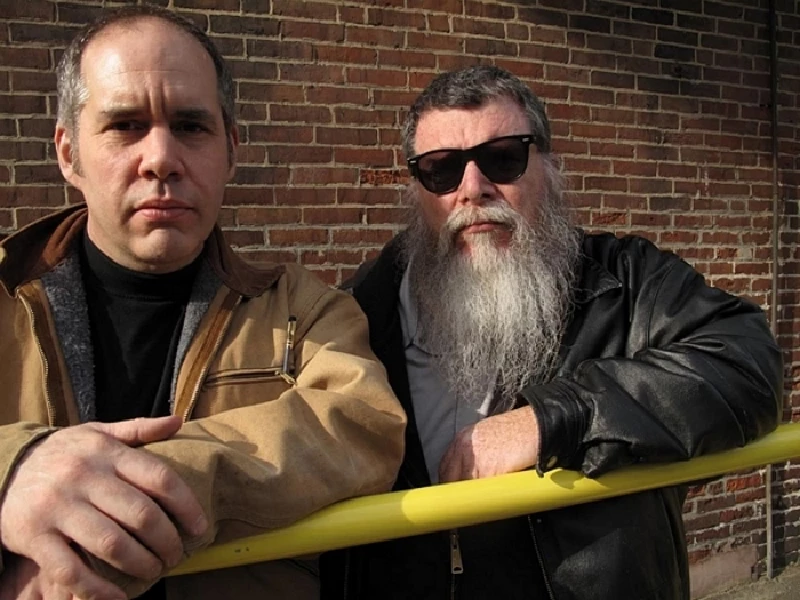
intro
Willard Grant Conspiracy viola player David Michael Curry talks to John Clarkson about its tenth and final album 'Untethered' which was completed after the death of its front man Robert Fisher during its recording.
When Robert Fisher, the vocalist and guitarist with Willard Grant Conspiracy, died from cancer in February 2017, his band mate and main musical collaborator David MIchael Curry inherited the difficult task of completing its tenth and final album, 'Untethered'. Robert Fisher had formed Willard Grant Conspiracy with original guitarist Paul Austin in Boston in 1996. A consortium based around Fisher and Austin and whoever was available to play and record at the time, there was an amount of truth in the statement that appeared on the sleeves of their early albums and which is reprised for 'Untethered': "If someone tells you they played on this, they probably did." Fisher would also regularly half-joke with his audiences at gigs that Willard Grant Conspiracy had upwards of forty-five members. David Michael Curry joined Willard Grant Conspiracy in 1997 shortly after he bought a viola in a junk shop, first appearing on its 1998 second album, 'Flying Low'. His ghostly, eerie viola-playing helped cement Willard Grant Conspiracy's initial sound, fusing the band's alt.country leanings with a discordance and experimentalism, which combined dynamically with the lyrics of the baritone-voiced Fisher - a Californian-born, Baptist-raised recovering alcoholic - whose story songs told of drugs, sin, religion, death and the bottle. Curry was a prolific presence on Willard Grant Conspiracy's third and fourth albums, 'Mojave'(1999) and 'Everything's Fine'(2000), both of which were like 'Flying Low' co-produced with the band by Boston producer, engineer and bassist Pete Weiss. During the recording of its fifth album 'Regard the End', Paul Austin left Willard Grant Conspiracy to move to Seattle and Fisher returned to live in California for over a decade. The group became more orchestral in tone, often going out on the road with a personnel of nine or ten. Curry is the only member of Willard Grant Conspiracy to appear other than Fisher on all their albums post 'Flying Low', but during 'Regard the End' and for its next two LPs 'Let It Roll' (2006) and 'Pilgrim Road' (2008) his appearances became more fleeting, confined to occasional tracks rather than across whole albums. Fisher and Curry's musical partnership stepped up a gear for Willard Grant Conspiracy's eighth album 'Paper Covers Stone' (2009), which stripped the line-up back to a four-piece and, combining reworked versions of old songs with new songs, was recorded in Weiss' then new studio in Vermont in New England. The next Willard Grant Conspiracy album, the desolate and discordant 'Ghost Republic' (2013), about Bodie, a Californian ghost town near Fisher's home, pulled the line-up back even further, reducing it just to Fisher and Curry and was recorded in Curry's small home studio Fort Summer in Somerville near Boston. Early work on what became 'Untethered' began as far back as 2013 when Fisher and Curry, also involving cellist Jonah Sacks who is in Curry's ambient side project Empty House Cooperative, recorded 'Dwelltime', a tour only EP/mini-album which included early draft versions of seven of its songs. Fisher had moved back near Boston in 2014 and was diagnosed with cancer in late 2015, shortly after completing a final tour of Europe with Curry and Sacks. By the time of his death, recording on the album which had again taken place at Fort Summer, including all his vocal and acoustic guitar parts, was largely completed. Curry was left with the task of undertaking final mixes of the album. While some of its musicians had already added parts to 'Untethered' before Fisher's death, Curry invited others, including several early members and Come guitarist Chris Brokaw, who had played on bills with Willard Grant Conspiracy, to contribute overdubs. The resulting album, which as well as Fisher, Curry and Sacks involves another twelve musicians, is a fine testimony to Willard Grant Conspiracy. It opens with 'Hideous Beast', probably the most abrasive song in Willard Grant Conspiracy's twenty-two year career, in which against a backdrop of heavy, swaggering bass, Fisher provides a furious vocal proclaiming that he is a hideous beast. Nostalgic for the past and bittersweet in tone, 'Saturday with Jane' pushes Curry and Sacks' melancholic viola and cello to the fore and has Fisher reflecting about happy weekends spent with a former girlfriend. The haunting title track, the only song that Fisher wrote after his diagnosis and which has him backed by Curry's magnificent, fiery viola, finds him facing his cancer (“I dreamed last night I was blown apart and busted/Sidestepped my way into the path of a hurricane”). There are also four instrumentals, including the waltzing 'Two Step' and final tour-de-force and last number 'Trail's End', which involving Brokaw's cascading guitar swells, concludes the album in a thunder of distortion. Although he has spoken to Pennyblackmusic twice before, once in 2002 about Empty House Cooperative and again in 2013 about 'Ghost Republic', David Michael Curry is a shy interviewee. "I wish I could do interviews and tell stories like Robert. No one was better," he says early on in the interview about Fisher who was a master at interviews and did eight of them with Pennyblackmusic. Later on the self-confessed "impulsive, chaotic thinker" laughs that "having to talk about the album is as anxiety provoking for me as was mixing and remixing the record." He has been through a lot over the last few years, both before and after Robert Fisher's death, and the role of spokesperson for Willard Grant Conspiracy has been thrust upon him. Despite his nervousness, he proves to be articulate, thought-provoking and humorous. PB: Why do you think you and Robert Fisher’s musical partnership lasted as long as it did? You appeared on all but the first WGC album ‘3 am Sunday @ Fortune Otto's'? It was a partnership that began to take increasing musical weight again during the last few albums. DMC: Robert and I had a long-ranging friendship. He certainly captivated people, and if he had a good feeling about what they would contribute he would welcome them in. There were a lot of times that I wasn’t so close to the band and there were plenty of years like that, but in the beginning it was free-flowing and fun. Then in the middle I wasn’t so involved at all and doing other things, but towards the end things took off again we did the ‘Paper Covers Stone’ album. Loose Music, Willard Grant Conspiracy's record label, had asked Robert to make the kind of record that the live gigs saw, less orchestrated and more elemental and a little bit more back-to-basics. After that record I stayed involved and we ended up talking about what he was going to do next. One of the ideas was for Robert and I to do a garage rock band together, just something messy and free-flowing and rock-orientated, but that never happened and that turned eventually into ‘Ghost Republic’. Money was a big issue and the band got smaller for a while. I love driving and we developed this thing where we would go all around Europe in a small car and do these duo shows together. PB: What did you enjoy most about working with Robert? DMC: He was really good at fostering creativity in other people and that was huge for me. PB: When did work on ‘Untethered’ first begin? DMC: Work on this album began with ‘Dwelltime’, a tour only CD from 2013 in which several of the songs appeared in unreleased versions. We always said that we would add more to those and they would become a record. I love seeing songs in different versions and different stages but a lot happened between ‘Dwelltime’ and when ‘Untethered’ was finally finished – family health situations, Robert being sick, me learning along the way how to become a better recording engineer. I don’t consider myself a recording engineer. I consider myself a lifelong archivist of band rehearsals and that turned into a passion for recording. There were a lot of delays. A lot of them had to do with just everyday life slowing things down, but towards the end it became about what could I do better for this record. I had a huge amount of anxiety letting the songs go. The pressure was, however, me against myself as I had a lot of help and great advice from friends at various stages of the mixing. PB: The third main player on the album is Jonah Sacks who played the last European tour in 2015 and provides cello. Who is he? DMC: He is a fantastic player. He is “the secret sauce” of this record in a way. I love his playing. We asked him to do a few local shows a few years back and to join us for the final European tour, and he was able to find time from his work schedule to join us. I have been playing with him for many years with Empty House Cooperative and he is just great. He has been playing cello since kindergarten. PB: ‘Untethered’ also features three other WGC newcomers as well as Jonah – Michael Tarbox on electric guitar, Jonathan Ulman on drums and Aaron Charlwood on piano. Who are they? DMC: I know Jonathan from the Thalia Zedek Band - he gets around. Michael Tarbox is a great musician who WGC occasionally shared bills with in the past. I met Aaron Charlwood through my bicycle friends - he’s an over-achiever with a sensitive and intuitive touch on piano. Robert and I were both super-excited to get friends and old-timers alike on the record - every contribution is important, but I was facing issues of the songs being in danger of sonic saturation - I would have loved having my HONK Festival friend Joanna to play sousaphone on ‘Hideous Beast’ - that’s the one song I felt like I ran out of time on. Maybe if there’s ever an opportunity for a reissue/remix. It was so great to have Pete Weiss, who recorded much of WGC’s early albums, and Sean O’Brien, playing the same 12-string guitar as on ‘3 am Sunday @ Fortune Otto’s’, Erich Groat’s mandolin magic, Road dog friends Steve Wynn and Jason Victor, Chris Brokaw, Drew O’Doherty, and Dutch bassist Erik van Loo - all of whom toured with or played with WGC in the past. PB: How many of these musicians came into the recording studio with you to add their contributions and how many sent them in? DMC:: Steve and Jason both sent their contributions in. Pete Weiss also sent his contribution from elsewhere. Everyone else came into Fort Summer, my home studio in Somerville, to do their pieces. Some of that was down to luck. For example, Erik Van Loo was travelling and he happened to be in Boston. Robert and I were like, “Let’s get him in the studio.” PB: Robert said in 2015 shortly before he was diagnosed with cancer that this album would be a dark album. Take away his illness and that this was his last record, and do you see it as any more dark than other WGC records? DMC: The songs take me to places and situations that aren’t easy - I believe the album speaks with the voice that WGC has always had, but the lyric content feels more true and relevant, even through the haze of poetic license. To me, having people playing on the album who were there from the start was important and it felt like there was a lot of support and patience from everyone involved, so that makes it less dark for me. You always have to look for the light - I think we tried to be that way as a band and as friends. Everyone should try it. I think this record looks inward more, I think it talks more about trying to find a quiet place such as on ‘Saturday with Jane’, for example, or ‘Two Step’, which has a little dance in a candlelit room kind of feeling. The title track, which was the only song that Robert wrote after he found out that he had cancer, is about staring at death in the face, but even there though I feel that it is dreaming of better days and maybe looking ahead with a bit of hope. PB: Who decided on the track listing for the album? It opens with ‘Hideous Beast’ which is the most confrontational track on the record. Why did you decide to open on such an abrasive, demanding note? DMC: I sequenced the record and Robert approved it. There seemed to be no other place for ‘Hideous Beast’ but right up front and in your face with a big handful of Pete Sutton’s awesome rock-solid bass playing - I feel like the yelling gets left behind as the music travels across the songs. The mastering sessions were with Jeff Lipton at Peerless. Jeff was there from the start and has close ties to the band. I think he helped transform ‘Hideous Beast’ from a baseball bat into a sledge hammer. PB: Robert tended to avoid putting himself on the sleeves of albums, yet there is a beautiful drawing by you of him on the front cover of 'Untethered'. Did you have to think hard about doing that? DMC: I thought about every little detail about the whole thing from top to bottom and got stuck and obsessive more than I’d care to admit, but it was Tom Bridgewater from Loose Music who suggested that there be a picture of him. I feel like the art pays tribute, and also references the band’s history - the roof of where the music was recorded, Robert’s kitchen, desert places where he came from, and with the street sign on the back cover (it’s a clue the the origin of the band’s name). PB: Are you still involved with Empty House Cooperative? DMC: Empty House Cooperative will always be part of my life. I call it the eternal side project. It is on the back burner but the burners are always rotating, PB: What else have you been doing musically? DMC: It has been hard for me to think of anything aside of this record during the last couple of years, but I have been doing in recent months some recording and live work with Hallelujah the Hills, who are an indie/experimental band in Boston, and also the Thalia Zedek Band who I have played with for years. I have also been doing various noise and improvisational things here and there. PB: Thank you.
Band Links:-
https://en-gb.facebook.com/WillardGrantConspiracy/https://twitter.com/willardgrant
https://www.willardgrantconspiracy.com/
https://en.wikipedia.org/wiki/Willard_Grant_Conspiracy
Picture Gallery:-
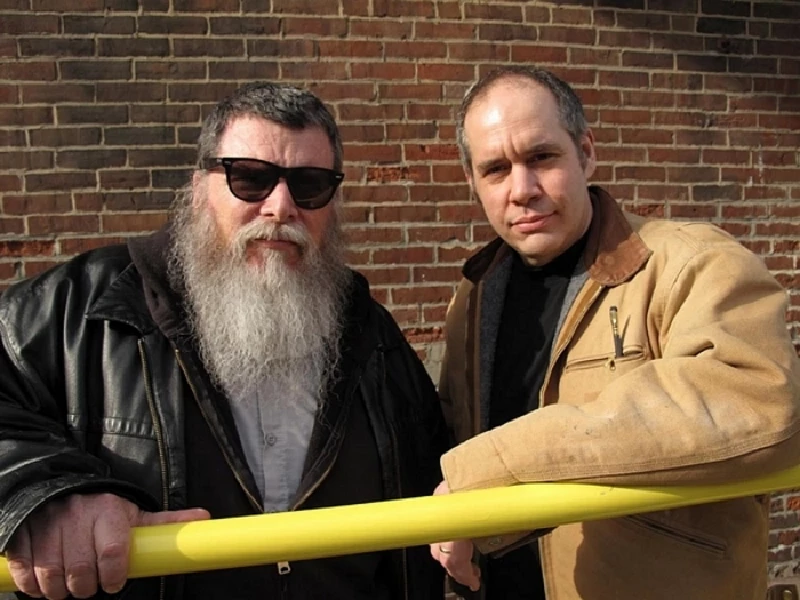
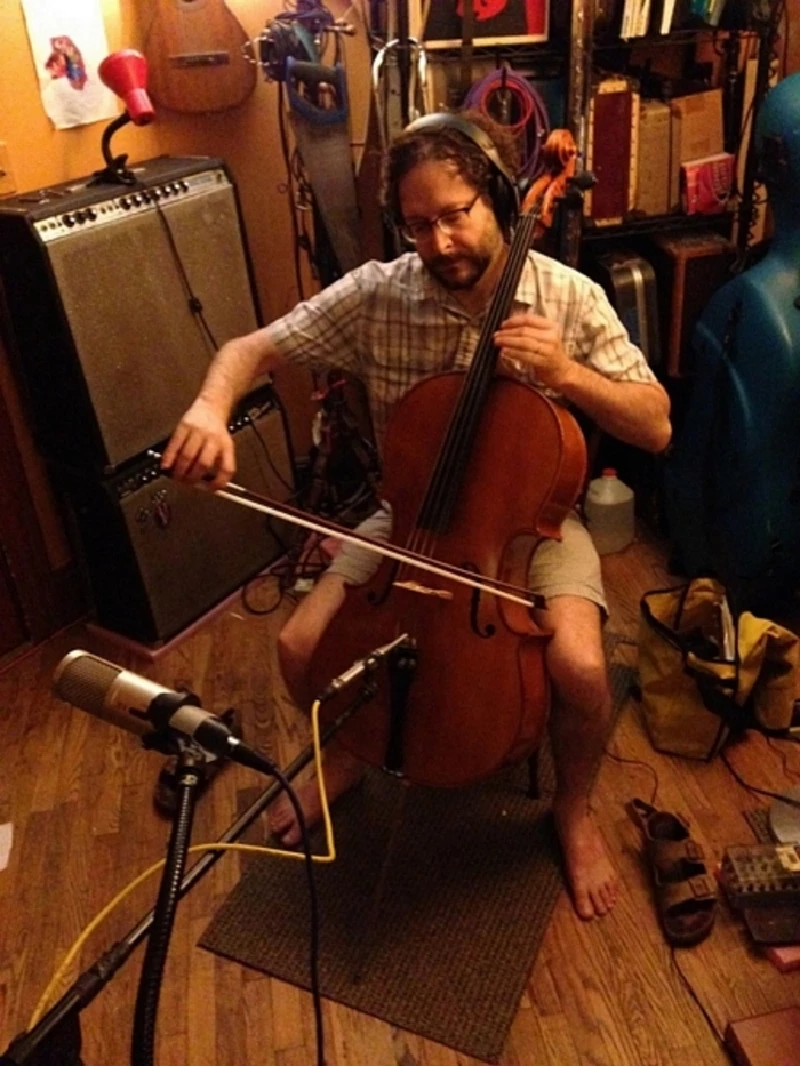
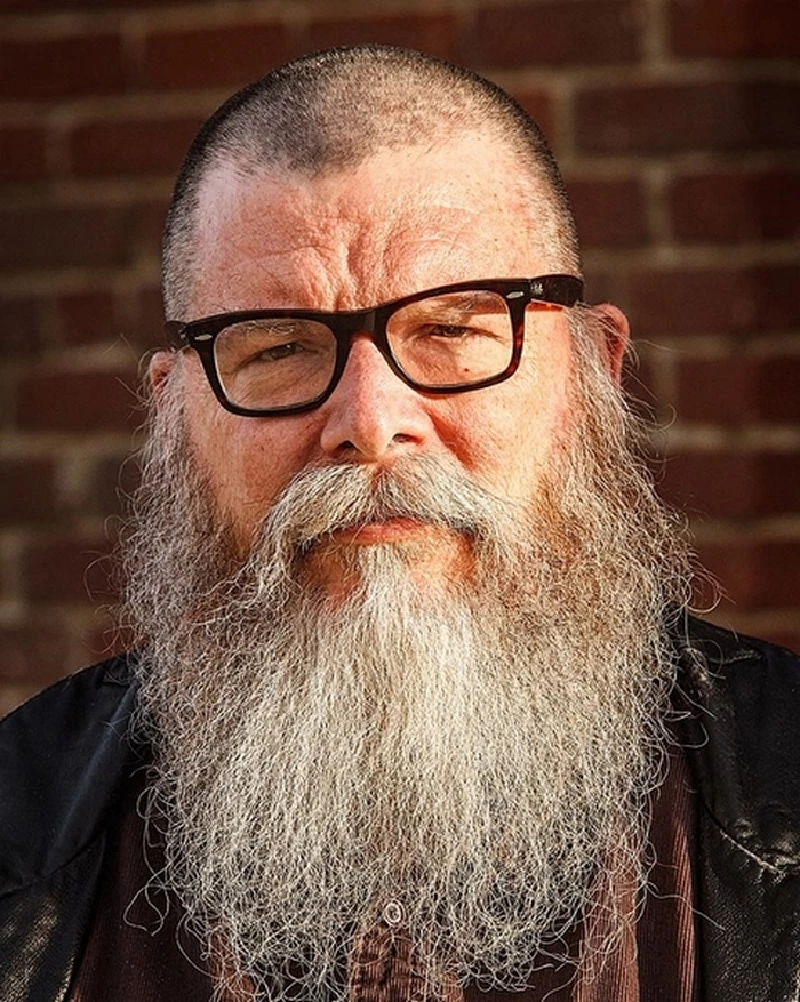
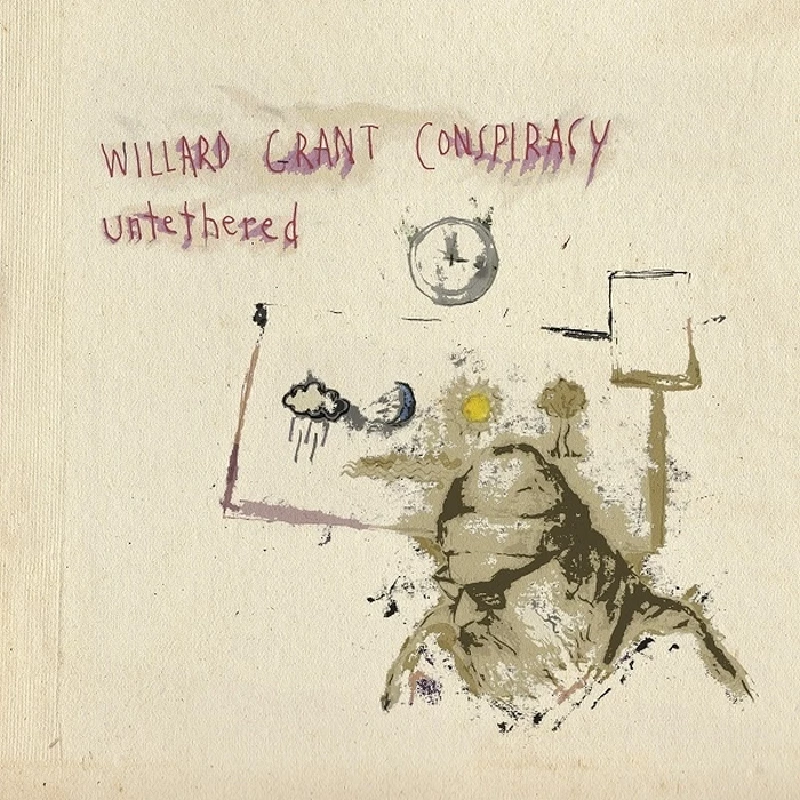
interviews |
|
Interview (2013) |
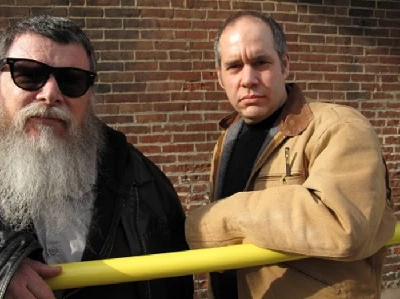
|
| John Clarkson speaks to Willard Grant Conspiracy front man Robert Fisher and viola player David Michael Curry about their extraordinary new album 'Ghost Republic', which takes a lot of its inspiration from a ghost town in Fisher's native California |
| Interview (2009) |
| Interview (2008) |
| Interview with Robert Fisher (2006) |
| Interview with Robert Fisher (2003) |
| Interview Part 2 (2000) |
| Robert Fisher Interview (2000) |
| Interview Part 1 (2000) |
live reviews |
|
Garage, London, 18/9/2009 |
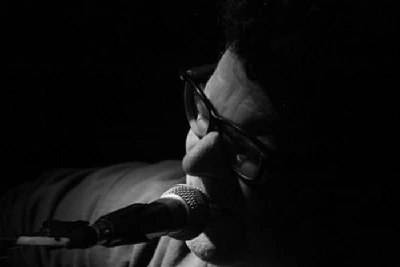
|
| In an evening fraught with difficulties and distractions, Ben Howarth at the Garage in London watches Robert Fisher's Willard Grant Conspiracy, against the odds and a heavily reduced stage time, play a riveting and forceful set |
| Majestic Theater, Detroit, 24/9/2009 |
| Bloomsbury Theatre, London, 18/5/2008 |
| Luminaire, London, 9/11/2007 |
| Dingwalls,, London, 9/5/2006 |
| Edinburgh Village, 11/7/2002 |
features |
|
Ten Songs That Made Me Love... (2017) |
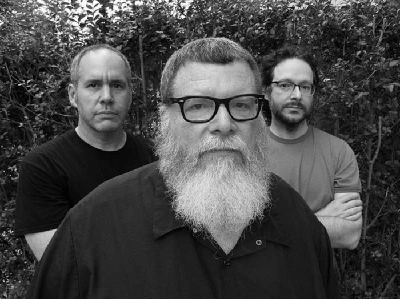
|
| In 'Ten Songs That Made Me Love...' John Clarkson pays tribute to Robert Fisher from the Willard Grant Conspiracy, who died at the age of 59 in February and who we interviewed many times and headlined our Bands Nights on four occasions |
reviews |
|
Untethered (2019) |
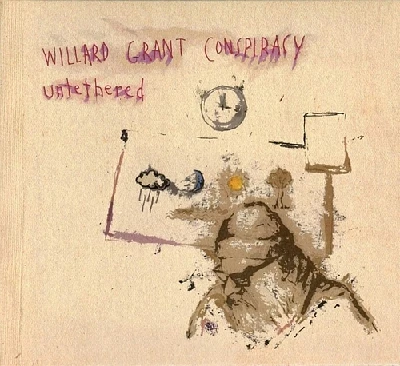
|
| Evocative tenth album from Willard Grant Conspiracy which features the last recordings of its front man Robert Fisher who died in early 2017 |
| Paper Covers Stone (2009) |
| Regard The End (2003) |
| Everything's Fine (2001) |
| Mojave (2001) |
most viewed articles
current edition
Carl Ewens - David Bowie 1964 to 1982 On Track: Every Album, Every SongArmory Show - Interview with Richard Jobson
Colin Blunstone - Thalia Hall, Chicago, 16/7/2025
John McKay - Interview
Visor Fest - Valencia, Spain, 26/9/2025...27/9/2025
Bathers - Photoscapes 1
Billie Eilish - O2 Arena, London, 10/7/2025
Loft - Interview
Robert Forster - Interview
Sir Tim Rice - Interview
previous editions
Manic Street Preachers - (Gig of a Lifetime) Millennium Stadium, Cardiff, December 1999Heavenly - P.U.N.K. Girl EP
Beautiful South - Ten Songs That Made Me Love...
Oasis - Oasis, Earl's Court, London, 1995
Prolapse - Interview
Boomtown Rats - Ten Songs That Made Me Love....
Peter Perrett - In Dreams Begin Responsibilities Interview Part One
Coldplay - Wembley Arena. London, 16/8/2022
Trudie Myerscough-Harris - Interview
Pixies - Ten Songs That Made Me Love...
most viewed reviews
current edition
Davey Woodward - Mumbo in the JumboAmy Macdonald - Is This What You've Been Waiting For?
Sick Man of Europe - The Sick Man of Europe
Phew, Erika Kobayashi,, Dieter Moebius - Radium Girls
Alice Cooper - The Revenge of Alice Cooper
Lucy Spraggan - Other Sides of the Moon
Bush - I Beat Loneliness
Suzanne Vega - Flying With Angels
Blueboy - 2
Cynthia Erivo - I Forgive You
related articles |
|
: Interview (2023 |
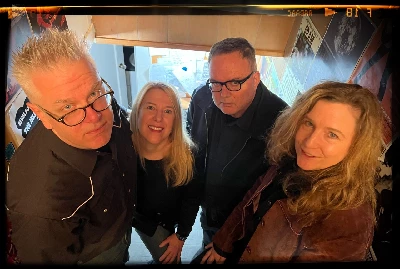
|
| In the first part of a two part interview, both parts which we are running consecutively, guitarist Paul Austin talks to John Clarkson about the reformation of his band The Transmissionary Six after a decade-long absence, and their new album, 'Often Sometimes Rarely Never'. |
| : Interview (2023) |
| Willard Grant Conspiracy/Big Hogg: Feature (2015) |
| Tom Bridgewater: Interview (2015) |
Pennyblackmusic Regular Contributors
Adrian Janes
Amanda J. Window
Andrew Twambley
Anthony Dhanendran
Benjamin Howarth
Cila Warncke
Daniel Cressey
Darren Aston
Dastardly
Dave Goodwin
Denzil Watson
Dominic B. Simpson
Eoghan Lyng
Fiona Hutchings
Harry Sherriff
Helen Tipping
Jamie Rowland
John Clarkson
Julie Cruickshank
Kimberly Bright
Lisa Torem
Maarten Schiethart